We were contacted by a patient who, at the age of 31, was diagnosed with borderline ovarian tumors in another Moscow clinic.
For reference: borderline tumors have some features of both malignant and benign tumors. Technically, they are not benign and are accompanied by frequent relapses when choosing an organ-preserving treatment, but they are also not malignant. Borderline tumors are insidious because they affect more often young women of 30-40 years old who have not yet managed to realize their reproductive function.
In the same clinic, the patient was offered to undergo 4 courses of chemotherapy, followed by surgery, after which she completed treatment with another course of chemotherapy. After such therapy, the patient would have to forget about her children forever, as the childbearing function would be lost. But the girl really wanted children and decided to turn to us for a second opinion.
After a thorough examination and clarification of all the details, the attending physician, head of the Clinic of Gynecology and Oncogynecology Vladimir Nosov, suggested a different treatment regimen. The doctor explained that the operation can be performed while preserving reproductive function, excluding the previous chemotherapy. The patient agreed to the operation.
Dr. Nosov removed the left ovary, performed a resection of the right ovary (preserving part of it and giving the patient the opportunity to become a mother), and coagulated the superficial metastases.
Histology showed a serous-borderline stage 3B tumor and the absence of invasive metastases. This meant that no further chemotherapy was needed.
Immediately after the operation, the patient was recommended to consult a reproductive specialist. A puncture of the right ovary was performed, where the oocytes matured. Then 1 embryo was implanted and 2 were left in a cryopreservation tank. However, the embryo did not take root.
According to the results of the MRI examination, the patient had a recurrence of the tumor and an endometrial polyp. Dr. Nosov performed a second operation, removing the pathological formations and leaving the ovary. Its preservation was necessary because the patient wanted to freeze several more embryos. Thanks to the efforts of reproductologist Nadezhda Belousova, 4 new embryos were cryopreserved. However, before re-implanting the embryo, in order to avoid subsequent relapses during pregnancy, Vladimir Nosov recommended the removal of the appendages in full.
The second IVF attempt was successful. The patient is currently in the 30th week of pregnancy and is being monitored by an obstetrician-gynecologist Arevik Charkhifalakyan.
Pregnancy is progressing well. The patient and her husband are happy that they did not rush to agree to chemotherapy.
This story proves once again that often one or another therapy regimen requires a lot of time, skill and effort from the doctor, but it is preferable for the patient.





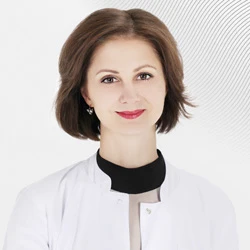
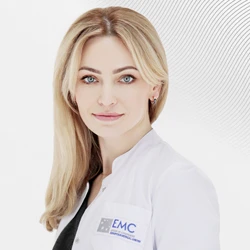
.webp)
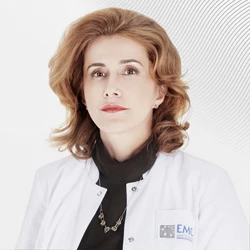
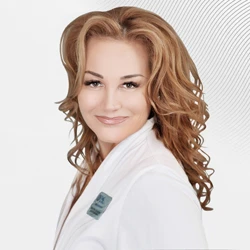

.webp)
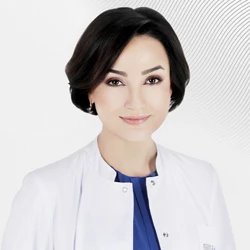
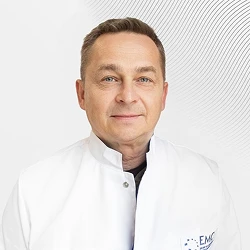

.webp)